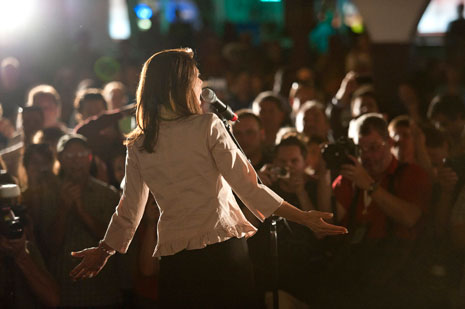A Q&A with biographer Deborah Baker, author of The Convert: A Tale of Exile and Extremism, released last month by Greywolf Press.
by Ashley Baxstrom
When biographer Deborah Baker came across a collection of letters at the New York Public Library, she opened a window into a particularly complex life. The letters told the story of Margaret Marcus, a Jewish woman raised in post-World War II upstate New York. Peggy, as she was known to her family, lived in search of community.
Marcus was a “social misfit” with a passion for National Geographic articles who found distressing the Israeli treatment of Arabs. She painted and wrote but couldn’t hold a job. Her parents sent her to a psychiatrist and, for a time, a mental institution. She exchanged letters with a noted Pakistani Muslim intellectual, Maulana Sayyid Abul Ala Mawdudi, who would become a leader of the radical political Islamic group Jamaat al-Islamiyya. In 1961, under Mawdudi’s tutelage, Peggy, then 27, converted to Islam, changing her name to Maryam Marcus. Then she packed her possessions and moved to Lahore to live as a guest of her mentor.
Maryam’s writings on Islam have been widely read in conservative Muslim circles, and may have played a role in the rise of militant jihad over the past half-century. As narrated in The Convert, just as interesting, however, is Maryam’s personal life – particularly as we, and Baker, come to realize that she may not have been as honest, or perhaps even as sane, as we first thought. Continue Reading →



